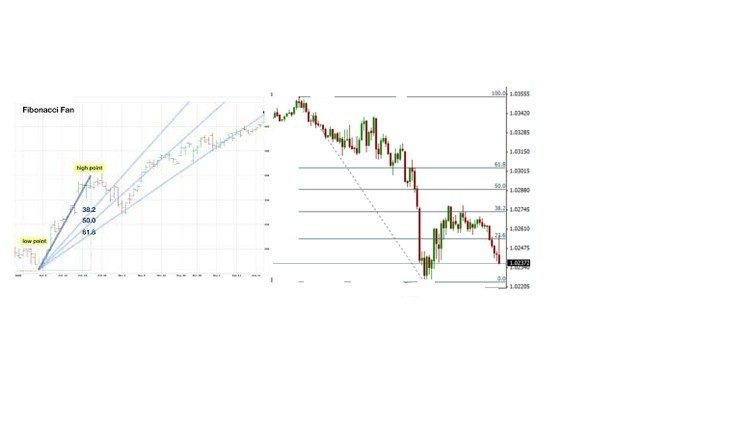



 Tech & IT
Tech & IT
 Business
Business
 Coding & Developer
Coding & Developer
 Finance & Accounting
Finance & Accounting
 Academics
Academics
 Office Applications
Office Applications
 Art & Design
Art & Design
 Marketing
Marketing
 Health & Wellness
Health & Wellness
 Sounds & Music
Sounds & Music
 Lifestyle
Lifestyle
 Photography
Photography
More Learnfly
Business Solution Become an InstructorInvesting involves allocating resources to assets like stocks, bonds, or real estate with the expectation of earning returns over time. It encompasses various strategies, risk assessments, and financial analysis to optimize growth and achieve financial goals.

By : Debasruta Chowdhury
Understand the basic of International Trade and try to analyse the benefits, challeng...
4.3 146
1:19:44 hrs 6 lectures All Level

By : Prabh Kirpa Classes
Meaning and components of Current Account in Balance of Payments, Calculating Current...
4.3 213
6 lectures All Level
.jpg)
By : TechLatest .Net
Mastering Deployment, Management, and Participation in the Bitcoin Network...
4.5 823
1:21:51 hrs 8 lectures All Level

By : Satyendra singh
Financial Market, Fixed income securities, Ratios, Valuations , Modern portfolio the...
4.8 1007
3:42:49 hrs 10 lectures Expert Level

By : Satyendra singh
Financial Statements, Balance Sheet, Income Statements, Cash Flows, Financial Ratios,...
4.5 809
2:13:10 hrs 12 lectures Intermedite Level

By : Satyendra singh
Economic analysis, Intrinsic value, DCF, Valuation, Industry analysis, Corporate acti...
4.5 713
18 lectures Expert Level

By : Dinesh Kumar (NISM Certified)
Become A Successful Trader...
4.4 745
1:13:10 hrs 19 lectures All Level

By : Nrupen Masram
Invest In Stocks That Can Generate Profits In Less Than 3 Months....
4 718
1:36:42 hrs 24 lectures All Level

By : Nrupen Masram
An Easy-To-Learn and Easy-To-Apply Profitable Moving Average Trade System...
4 745
1:39:55 hrs 12 lectures All Level

By : Satyendra singh
Cash flows, balance sheet, Intrinsic value, Income statements,valuation concepts, cor...
4 960
5:51:40 hrs 23 lectures Expert Level












Learn more topics in various categories at one place. Explore unlimited courses in other categories and up-skill yourself today.

 Jazeb Akram
Jazeb Akram 4.2 771056 Beginner Level

 John Hedengren
John Hedengren 4.1 568974 All Level

 Ranjan Pandey
Ranjan Pandey 4.1 346662 All Level

 Muhammad Ahsan Pervaiz
Muhammad Ahsan Pervaiz 4.2 101263 All Level

 Pieter Vliegenthart
Pieter Vliegenthart 4.6 100852 All Level

 Jerome P.
Jerome P. 4.8 100774 All Level

 Vikas Munjal
Vikas Munjal 4.8 100008 Beginner Level

 Senol Atac
Senol Atac 4.9 99986 All Level

 Avinash A
Avinash A 4.8 99903 All Level

 Debasruta Chowdhury
Debasruta Chowdhury 6 Lectures Expert

 Prabh Kirpa Classes
Prabh Kirpa Classes6 Lectures Expert
.jpg)
 TechLatest .Net
TechLatest .Net8 Lectures Expert

 Satyendra singh
Satyendra singh16 Lectures Expert

 Satyendra singh
Satyendra singh11 Lectures Expert

 Satyendra singh
Satyendra singh10 Lectures Expert

 Satyendra singh
Satyendra singh10 Lectures Expert

 Satyendra singh
Satyendra singh15 Lectures Expert

 Satyendra singh
Satyendra singh10 Lectures Expert

 Satyendra singh
Satyendra singh19 Lectures Expert

 Satyendra singh
Satyendra singh32 Lectures Expert

 Satyendra singh
Satyendra singh12 Lectures Expert

 Satyendra singh
Satyendra singh18 Lectures Expert

 Satyendra singh
Satyendra singh48 Lectures Expert

 Satyendra singh
Satyendra singh31 Lectures Expert

 Satyendra singh
Satyendra singh18 Lectures Expert

 Dinesh Kumar (NISM Certified)
Dinesh Kumar (NISM Certified)19 Lectures Expert

 Dinesh Kumar (NISM Certified)
Dinesh Kumar (NISM Certified)33 Lectures Expert

 Dinesh Kumar (NISM Certified)
Dinesh Kumar (NISM Certified)37 Lectures Expert

 Dinesh Kumar (NISM Certified)
Dinesh Kumar (NISM Certified)31 Lectures Expert

 Dinesh Kumar (NISM Certified)
Dinesh Kumar (NISM Certified)34 Lectures Expert

 Dinesh Kumar (NISM Certified)
Dinesh Kumar (NISM Certified)37 Lectures Expert

 Dinesh Kumar (NISM Certified)
Dinesh Kumar (NISM Certified)45 Lectures Expert

 Dinesh Kumar (NISM Certified)
Dinesh Kumar (NISM Certified)33 Lectures Expert

 Nrupen Masram
Nrupen Masram24 Lectures Expert

 Nrupen Masram
Nrupen Masram8 Lectures Expert

 Nrupen Masram
Nrupen Masram15 Lectures Expert

 Dinesh Kumar (NISM Certified)
Dinesh Kumar (NISM Certified)32 Lectures Expert

 Nrupen Masram
Nrupen Masram12 Lectures Expert

 Satyendra singh
Satyendra singh27 Lectures Expert

 Satyendra singh
Satyendra singh15 Lectures Expert

 Satyendra singh
Satyendra singh23 Lectures Expert

 Dinesh Kumar (NISM Certified)
Dinesh Kumar (NISM Certified)43 Lectures Expert

 Dinesh Kumar (NISM Certified)
Dinesh Kumar (NISM Certified)40 Lectures Expert

 Amal mouna bouhlal
Amal mouna bouhlal27 Lectures Expert

 Amir Rimer
Amir Rimer76 Lectures Expert

 David Oisamoje
David Oisamoje13 Lectures Expert
.jpg)
 David Oisamoje
David Oisamoje13 Lectures Expert

 Daksh Murkute
Daksh Murkute12 Lectures Expert

 Daksh Murkute
Daksh Murkute25 Lectures Expert

 Daksh Murkute
Daksh Murkute9 Lectures Expert

 Daksh Murkute
Daksh Murkute13 Lectures Expert

 Chandramouli Jayendran
Chandramouli Jayendran115 Lectures Expert

 Tawanda Irvine Makoni
Tawanda Irvine Makoni15 Lectures Expert

 Anurag Singal
Anurag Singal27 Lectures Expert
Investing involves allocating money or resources with the expectation of generating returns or profits over time. It typically involves purchasing financial instruments such as stocks, bonds, real estate, or other assets with the goal of achieving long-term growth or income.
Investing is crucial for building wealth, preserving purchasing power, and achieving financial goals. It allows individuals and institutions to grow their assets over time, hedge against inflation, and work towards financial security and independence.
Main types include stocks (equities), bonds (fixed-income securities), real estate, mutual funds, exchange-traded funds (ETFs), and alternative investments such as commodities or hedge funds. Each type has different risk and return characteristics.
Risk is inherent in investing and refers to the uncertainty of achieving expected returns. Different investments carry varying levels of risk, and understanding and managing risk is crucial for making informed investment decisions aligned with one's financial goals and risk tolerance.
The time horizon, or the duration an investor plans to hold an investment, influences the choice of assets and risk tolerance. Longer time horizons may allow for more aggressive strategies, while shorter horizons may require a more conservative approach to protect capital.





